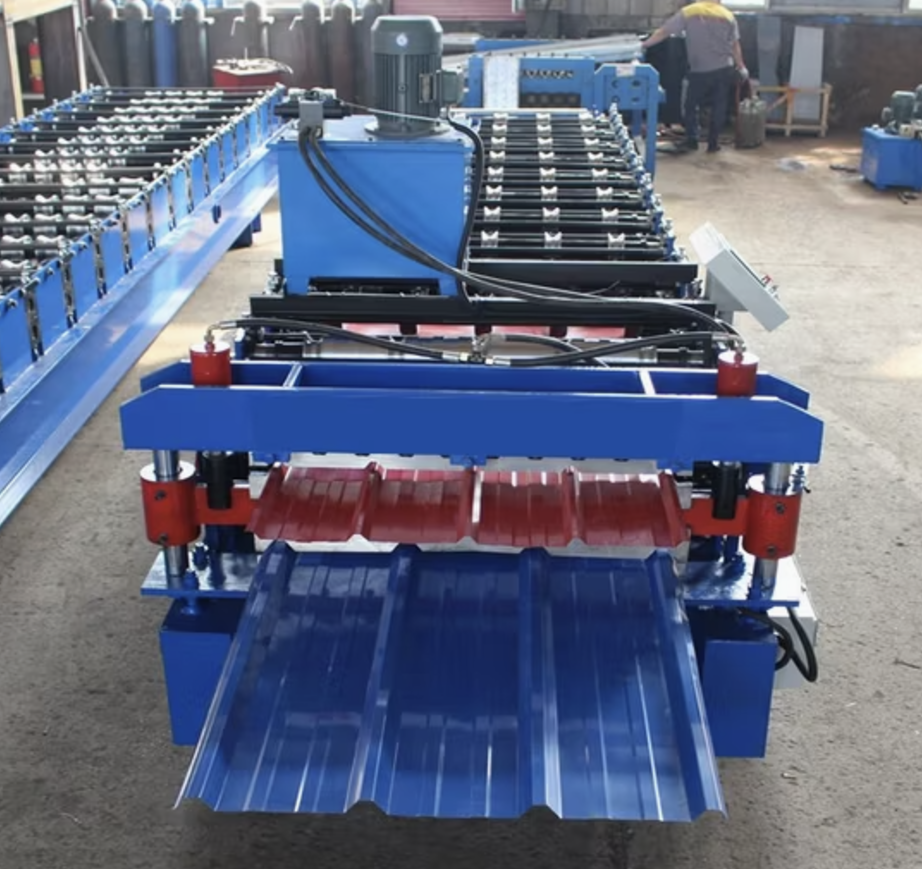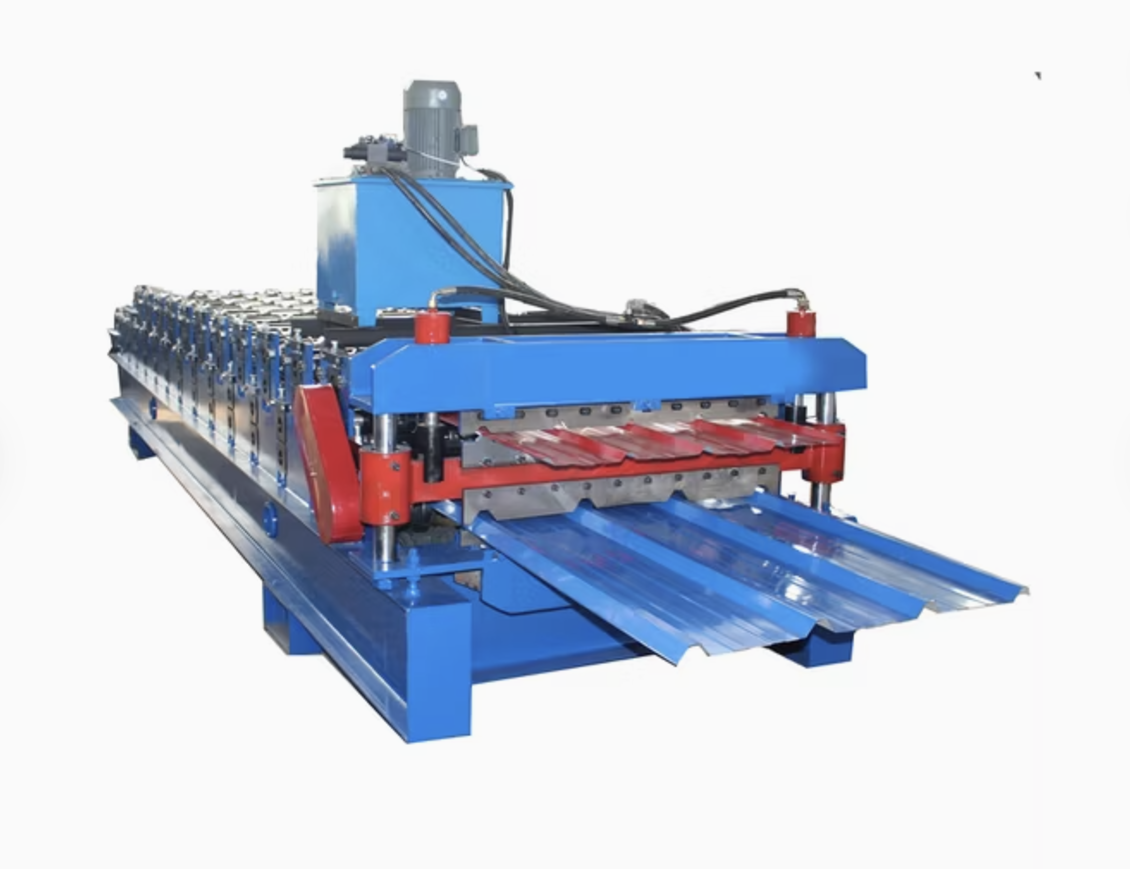To express an interest in this machine please submit the form below.

Not Sure What Machine You Need?
Select Your Profile, We'll Match It
Choose your desired profile drawing, and let Machine Matcher connect you with the best roll forming machine tailored to your needs.
Browse Profiles


Sheet metal roll forming machines are industrial equipment designed to shape sheet metal into specific profiles through a continuous bending process. These machines are essential for manufacturing components used in construction, automotive, HVAC, and other industries. They offer efficiency, precision, and repeatability, making them invaluable in modern metal fabrication.
A sheet metal roll forming machine consists of a series of rollers arranged in stations. Each station incrementally bends the sheet metal to achieve the desired shape. The process is highly efficient, allowing for long lengths of profiles with consistent quality.
Here are the typical specifications of a sheet metal roll forming machine tailored for the UK market:
| Specification | Details |
|---|---|
| Roller Material | High-grade steel with chrome coating for durability and rust resistance |
| Frame Construction | Heavy-duty welded steel |
| Motor Power | 5–15 kW, depending on the application |
| PLC System | Siemens or Mitsubishi, with HMI interface |
| Number of Stations | 12–20 (varies based on the complexity of the profile) |
| Material Thickness | 0.3–1.5 mm (customizable) |
| Profile Width | 100–1250 mm |
| Machine Speed | 15–30 meters per minute |
| Cutting System | Hydraulic cutting for precision |
| Power Supply | 380V, 50Hz (adjustable for UK standards) |
| Safety Features | Emergency stop, safety guards, and enclosure systems |
Setting up a sheet metal roll forming machine involves:
Q1: What materials can a sheet metal roll forming machine process?
A1: These machines can process various materials, including galvanized steel, aluminum, stainless steel, and copper.
Q2: Can the machine produce multiple profiles?
A2: Yes, with interchangeable roller sets or adjustable rollers, a single machine can produce multiple profiles.
Q3: Is training required to operate the machine?
A3: Basic training is recommended to understand the PLC system and safety protocols.
Q4: How long does it take to install the machine?
A4: Installation typically takes 1–3 days, depending on the machine size and complexity.
Q5: What factors should I consider when buying a machine for the UK market?
A5: Consider power supply compatibility, compliance with UK safety standards, and availability of local support.
Q6: How do I ensure the machine complies with UK standards?
A6: Purchase machines certified to CE standards, and consult with suppliers about compliance with UK regulations.
Q7: What is the lifespan of a sheet metal roll forming machine?
A7: With proper maintenance, these machines can last 10–15 years or more.
Copyright 2026 © Machine Matcher.